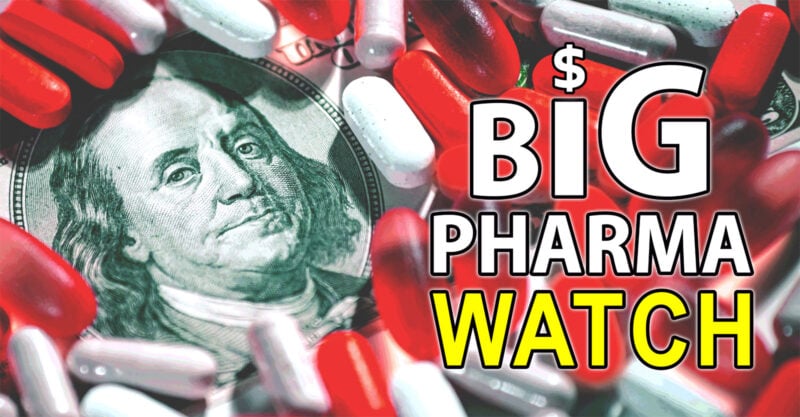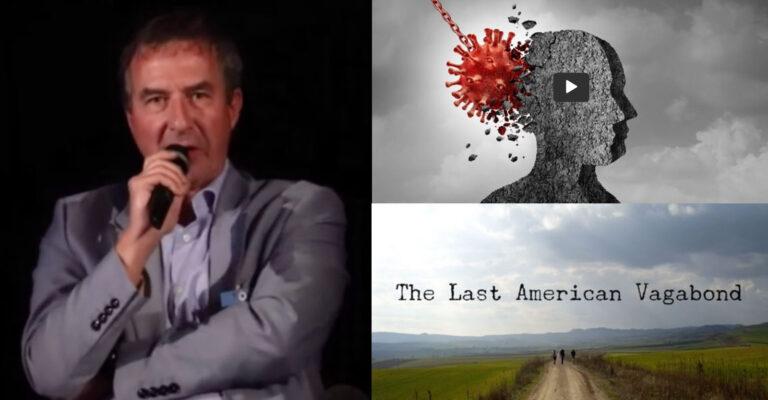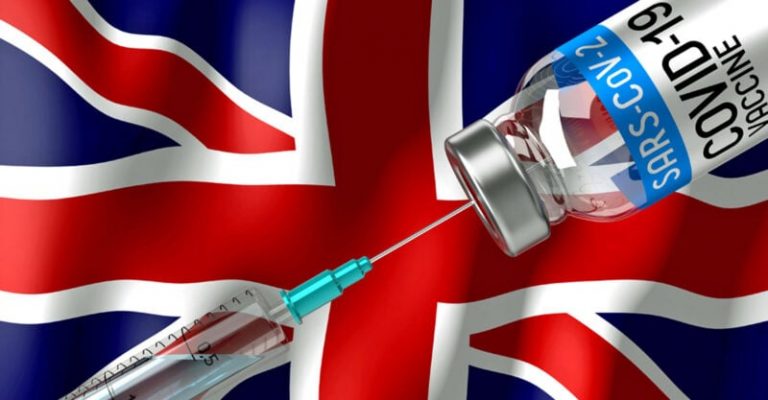Opposition to Vaccination Among Parents Grows, Poll Suggests + More
The Defender’s Big Pharma Watch delivers the latest headlines related to pharmaceutical companies and their products, including vaccines, drugs, and medical devices and treatments. The views expressed in the below excerpts from other news sources do not necessarily reflect the views of The Defender. Our goal is to provide readers with breaking news that affects human health and the environment.
Opposition to Vaccination Among Parents Grows, Poll Suggests
A growing number of Canadian parents say they are opposed to vaccinating their children, according to a new poll, amid a resurgence in potentially deadly diseases such as measles.
The opinion poll, released Wednesday by the Angus Reid Institute, comes as public health officials try to catch up on routine vaccinations among children after a drop off during the pandemic.
Among survey respondents, 17% of parents of minors said they are “really against” vaccinating their kids, compared with four percent in 2019. A majority, 67%, said they would vaccinate their child “without reservation,” down from five years prior. Another 16% said they weren’t sure.
An increased number of parents also said they were opposed to mandatory vaccination in school, which is a policy in place in Ontario and New Brunswick. Opposition to this idea climbed from 24% to 38% between 2019 and 2024.
CDC Recommends Spring COVID Booster for Older Adults
People at higher risk for the most severe complications of COVID — primarily those ages 65 and older — should receive a booster shot this spring, the Centers for Disease Control and Prevention said Wednesday.
The CDC’s recommendation came hours after the agency’s Advisory Committee on Immunization Practices voted in support of the extra dose.
Another round of the vaccine given within the next few months would offer the best protection possible, the advisers said, ahead of another likely rise in illness this summer. Over the past four years, there’s tended to be both a winter and a summer wave of COVID, with cases peaking in January and August, respectively, according to the CDC.
For that reason, advisers to the CDC said that the approach to COVID vaccination is still different from the strategy used for the flu, which typically only peaks during the winter.
Bayer Gets $332 Million Roundup Verdict Slashed by More Than 90%
Bayer AG’s Monsanto unit persuaded a California judge to slash by more than 90% a $332 million jury award to a former land surveyor who blamed his cancer on the company’s Roundup weedkiller.
Judge Kevin Enright in San Diego rejected Monsanto’s bid for a new trial in Michael Dennis’ lawsuit but agreed to reduce the verdict to $28 million.
Amid Measles Outbreaks, UK Launches Vaccination Ad Campaign to Boost Childhood Immunizations
Facing a growing outbreak of measles, the U.K. on Thursday unveiled an advertising campaign aimed at boosting vaccination rates in children, which have steadily fallen over the past decade and took an even greater dip during the height of the COVID-19 pandemic.
The campaign, starting March 4, features children talking about their lack of protection from infections like measles and whooping cough if they’re not vaccinated. The ads, which tell parents to contact their general practitioners if they’ve missed getting their kids immunized, are designed to capture parents’ desires to keep kids safe.
The situation in the U.K. is not unique. Globally, measles cases have been rising. World Health Organization officials have been calling on countries to redouble efforts to shore up childhood vaccination rates and ensure they catch up with children who missed routine vaccinations because of disruptions to care during the pandemic.
The United States has seen clusters of cases as well, most recently at a school in Florida’s Broward County.
GSK Avoids Trial With Another Zantac Settlement in California
For the second time in four weeks, GSK has settled a personal injury lawsuit in California state court over the heartburn drug Zantac (ranitidine). The company revealed the dismissal of the case and the agreement in a release Thursday.
“The settlement reflects the company’s desire to avoid the distraction related to protracted litigation in this case,” according to the statement. “GSK does not admit any liability in this settlement and will continue to vigorously defend itself based on the facts and the science in all other Zantac cases.”
Terms of the settlement were not released for the case, which was set to go to trial on April 2. Earlier this month, GSK reached a confidential settlement in another Zantac suit in California, filed by David Browne, which was scheduled for a Feb. 20 trial.
While the deals represent some progress for GSK in the sprawling litigation, the company still faced around 79,000 lawsuits in the U.S. as of October, Reuters reports. Analysts have estimated that it will cost the company around $5 billion to resolve its portion of the litigation, according to the news service.
CDC Braces for Shortage After Tetanus Shot Discontinued, Issues New Guidance
The Centers for Disease Control and Prevention is urging doctors to conserve shots of a kind of tetanus vaccine, as the agency braces for a potential shortage of those shots this year.
Doctors should switch from using the so-called Td vaccine — the immunization that protects against both tetanus and diphtheria infections — to giving the broader Tdap vaccine instead whenever possible, the CDC now says. In addition to tetanus and diphtheria, the Tdap vaccine also offers protection against pertussis, the infection also known as “whooping cough.”
This year’s shortage risk stems from a decision by nonprofit vaccine maker MassBiologics to discontinue production of its Td vaccine, branded as TdVax.
Supplies of the shot will likely run low as soon as this summer from the shot’s distributor Grifols, the CDC told a panel of its vaccine advisers Wednesday.
Chikungunya Vaccine Approved for Select Groups by CDC Advisory Panel
In a global first, some travelers and laboratory researchers who are at risk of contracting chikungunya will soon be allowed to be vaccinated against the virus.
A committee of vaccine experts recommended Wednesday that those select groups of people should be offered access to the new vaccine, Ixchiq, which is made by Valneva Austria GmbH. It will become U.S. vaccination policy when Mandy Cohen, director of the Centers for Disease Control and Prevention, signs off on the recommendation from the Advisory Group on Immunization Practices.
The vaccine cannot be given to children. It was licensed last fall by the Food and Drug Administration for people 18 years of age and older.
While the disease is unpleasant, getting the vaccine can also be uncomfortable. It is a live-virus vaccine, containing chikungunya virus that was weakened in a lab. Live virus vaccines can be what’s known as reactogenic, making people feel temporarily unwell.
In the studies done to support licensure of the vaccine, 11.7% of participants who got the vaccine reported adverse reactions, compared to 0.6% of people who got a placebo shot. And 1.6% of vaccine recipients reported reactions severe enough to prevent them from taking part in daily activities or to require medical care. None of the participants in the placebo arm reported severe reactions.
Eye Ointments Sold Nationwide Recalled Due to Infection Risk
Multiple brands of lubricant eye ointments are being recalled due to a risk of infection after federal inspectors found unsterile conditions at the Indian plant where the products were manufactured.
The recall by Brassica Pharma Pvt. in Thane, a city in the Indian state of Maharashtra, comes after a deadly outbreak last year of eye infections linked to artificial tears made by another Indian firm.
Sold nationwide by retailers including CVS Health and Walmart, the latest recall involves four products by brands Equate, CVS Health and AACE Pharmaceuticals, according to the noticeposted Monday by the U.S. Food and Drug Administration.
A ‘Vaccine-Like’ Version of Wegovy Is on the Drawing Board at Novo Nordisk
New obesity drugs like Wegovy and Zepbound are currently taken once a week, indefinitely. But what if they could be taken once a year instead, like a vaccine?
That’s a question that Novo Nordisk, the pharma company behind Wegovy, is exploring as it faces increased competition from other drugmakers aiming to develop similar GLP-1-based treatments for obesity.
Healthy Returns: The Newest Treatment Use for Weight Loss Drugs? Liver Disease
Drugmakers aren’t just racing to develop drugs that treat obesity. They’re also competing to expand the uses of those weight loss treatments, including for a severe form of liver disease.
Some drugmakers — including the dominant players in the market, Novo Nordisk and Eli Lilly— have already demonstrated the drugs’ ability to help patients shed unwanted pounds and regulate blood sugar.
Now, they aim to show the treatments can bring additional health benefits. Doing so could unlock even more revenue from the booming market, and expand the limited insurance coverage for those treatments, most of which cost close to $1,000 per month.
The competition heated up on Monday after Denmark-based drugmaker Zealand Pharma and its partner Boehringer Ingelheim posted strong results from a midstage trial testing its drug, survodutide, in patients with metabolic dysfunction-associated steatohepatitis, or MASH. That condition is characterized by excess fat buildup and inflammation in the liver and can lead to liver scarring, or fibrosis.
Colorado Is Trying to Cap a Drug’s Price. Big Pharma Has Other Plans
A State Board in Colorado is working to make history by becoming the first in the country to cap the price of a drug it deems unaffordable. Amid an aggressive industry lobbying campaign, Colorado lawmakers are now weighing a poison pill measure that would blow up the plan and similar efforts in the future.
The episode highlights the vast power of Big Pharma and how difficult it is to lower drug prices in the United States. The U.S. is an outlier among the rest of the world because Congress for decades barred Medicare from negotiating drug prices, as virtually all other nations do. It’s a major reason why Americans pay the world’s highest prices for products that are developed with support from the U.S. government, even when those drugs have been around for decades.
Enbrel, the rheumatoid arthritis drug being targeted by Colorado officials, is an extreme example of this phenomenon. Manufactured by Amgen, Enbrel costs 373% more in the U.S. than in European countries — even though the drug was developed with a staggering $2.6 billion in funding from the U.S. National Institutes of Health. First approved in 1998, Enbrel has no competition: Its manufacturer built “a patent thicket” that has successfully blocked biosimilars from coming to market, even after its primary patent expired in 2010.
Last week, the Colorado PDAB voted to declare that Enbrel is unaffordable and start the process of setting an upper payment limit for the drug. Several states have set up similar drug affordability boards, but advocates believe this is the first time a state has moved to step in and formally set a price cap on a medicine.
Suggest a correction







